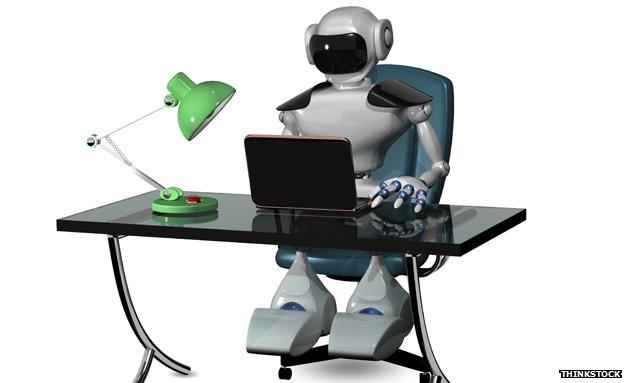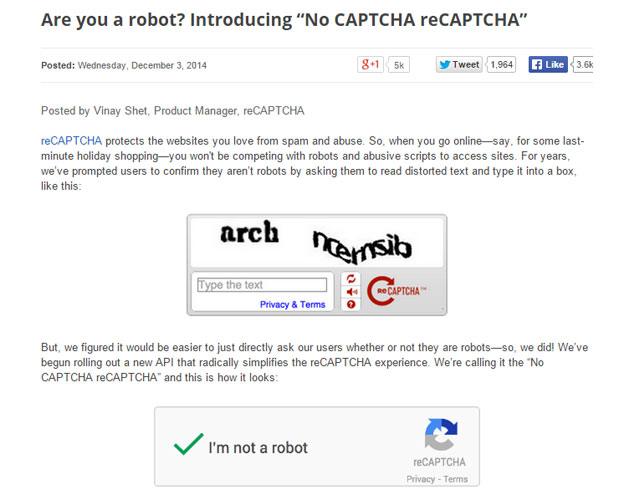Who, what, why: What is replacing Google's annoying ReCaptcha test?
- Published

Online security checks asking users to type in random hard-to-read words are being replaced with a simple box to tick next to the words "I am not a robot". Why, asks Justin Parkinson.
It frustrates visitors to hundreds of thousands of websites. A computer presents users with a fuzzily written or confusingly presented word or two to type in.
Captcha, standing for Completely Automated Public Turing test to Tell Computers and Humans Apart, is designed to prevent automated spamming of sites by setting this test, which people find easier than machines.
Google's ReCaptcha system introduces hard-to-read text from newspapers, books and other old sources, external such as maps. It presents two words - one the computer recognises and one that it doesn't. That second word would have been scanned but rendered illegible and, so, the repeated deciphering of it by different users, who agree on what it is likely to be, would eventually enable that word to be reincorporated into the digitised archive it came from.

A survey in 2012 suggested humans found more than 90% of Captcha tests difficult, external. But computers have got better at them and can now solve an estimated 99.8% of them, Google says.
So it has altered the system, external. No Captcha ReCaptcha, being rolled out from Thursday, simply asks desktop computer users to tick a box saying "I'm not a robot". The actual tick is not important, but the human behaviour involved - such as the imprecise movement of the mouse before and after clicking and the time taken to solve the problem - is. Computers find these hard to replicate.
"The sheer complication of the human arm and hand and the way they direct a mouse makes it difficult to predict," says Tom Cheesewright, founder of the technology consultancy Book of the Future.
For mobile phones and tablets the tick-box test does not work on its own because there is no mouse. So users will be presented with an image and asked which of nine others is its closest match. Google says its new checks make sites safer from automated infiltration than before.
But not using text-recognition ReCaptcha means an end to the easily achieved mass-digitisation of archives. "The most important thing is user experience," says Cheesewright. "The digitisation was a nice way of meeting two needs in one but the core need is security."
However, No Captcha ReCaptcha presents other options for gathering data. "Using machines to identify similar objects in complex photos remains a unsolved challenge in computer science," says Peter Price, director at PPM Production, which specialises in TV programmes on technology. "It's a challenge that millions of mobile users will now unwittingly help Google to crack."
Subscribe to the BBC News Magazine's email newsletter to get articles sent to your inbox.